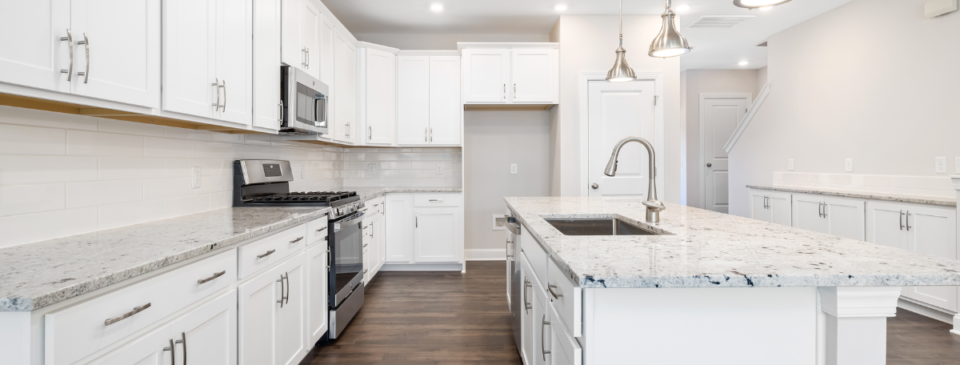Kitchen cabinets are essential to a kitchen’s appearance and functioning. They greatly enhance the room’s overall appearance and feel, in addition to serving as a source of storage. One of the most significant choices you’ll have to make when purchasing kitchen cabinets is selecting the right material. Your cabinets’ material choice influences not just how they look but also how long they last, how much upkeep they need, and how much it will cost. If you are looking for reliable and attractive kitchen cabinets for your next renovation, you can go through Aura Kitchens. They provide the best solutions for kitchen cabinets in Toronto, Mississauga, and nearby areas. To assist you in making the best choice for your house, we’ll examine the many kinds of kitchen cabinet materials in this article.
Fiberboard with a Medium Density: MDF
Composed of compressed and glued wood fibers and resin, MDF is a man-made material. For kitchen cabinets, it’s frequently utilized as a less expensive substitute for solid wood. MDF cabinets provide a homogeneous, smooth appearance without any discernible grain characteristics. There are countless ways to customize them with paints of different hues and finishes. When it comes to kitchen cabinets, MDF is a sturdy option because it is less likely to warp or split than real wood. Proper sealing is crucial to preventing damage because MDF cabinets might not handle moisture as well as solid wood.
Timber:
The most conventional and often-used material for kitchen cabinets is probably wood. It may be made into a variety of shapes and styles and has an enduring appeal. Oak, maple, cherry, birch, and pine are common wood species used for cabinets. Regarding grain pattern, color, and durability, every kind of wood is different from the others. For instance, maple provides a smoother, more uniform appearance, whereas oak is recognized for its strength and noticeable grain. Wood cabinets are adaptable in terms of design possibilities because they can be painted or stained to create different styles. Regular maintenance may be necessary for wood cabinets to prevent warping or damage from moisture and humidity.
Particle Board:
Particleboard, which is composed of wood particles joined by adhesive, is an affordable choice for kitchen cabinets. When built correctly, particleboard cabinets can nevertheless offer sufficient strength and stability, even though they are not as sturdy as plywood or solid wood. Usually, veneer or lamination is applied to them to enhance their durability and aesthetics. Because they are inexpensive and simple to assemble, particleboard cabinets are a popular option for homeowners on a tight budget. If not properly sealed, they could be vulnerable to moisture damage, so it’s essential to utilize them in dry areas or take precautions against moisture.
Plywood
Prevalent for its strength and stability, plywood is a different substance used to make kitchen cabinets. Thin wood veneer sheets are layered and adhered to one another to create it. Kitchens and other high-moisture areas are good places for plywood cabinets because of their exceptional durability and resistance to warping. Additionally, they are less likely to expand and contract as a result of variations in climate and humidity than solid wood since they provide more significant dimensional stability. Plywood cabinets can be finished with laminates or veneers to create numerous styles, from sleek, contemporary designs to genuine timber grain appearances.
Closing Remarks
The look and feel of your kitchen are affected by the material you choose for your cabinets, so make sure you do your homework. You can choose from multiple materials that will fit your demands and budget, whether you like the classic appeal of wood, the reasonable price of MDF, the robustness of plywood, or the expense-effectiveness of particleboard. Making an educated choice will guarantee that your kitchen cabinets not only look fantastic but also endure over time. This can be achieved by being aware of the qualities and benefits of each material.





